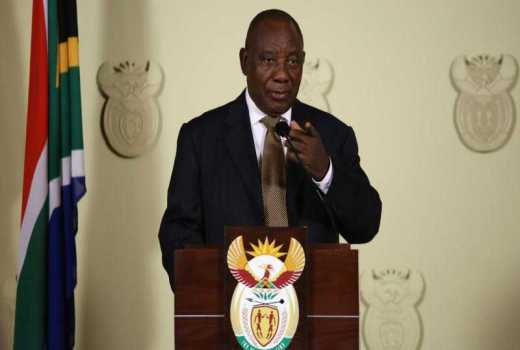×
The Standard e-Paper
Join Thousands Daily

South Africa's new president Cyril Ramaphosa appointed Nhlanhla Nene as finance minister on Monday, two years after Nene's sacking from the same role began the ruling party revolt that eventually ousted former leader Jacob Zuma.
Monday's cabinet reshuffle also saw Ramaphosa add new faces and remove some ministers allied to Zuma, who was ordered by his own African National Congress party to step down two weeks ago.